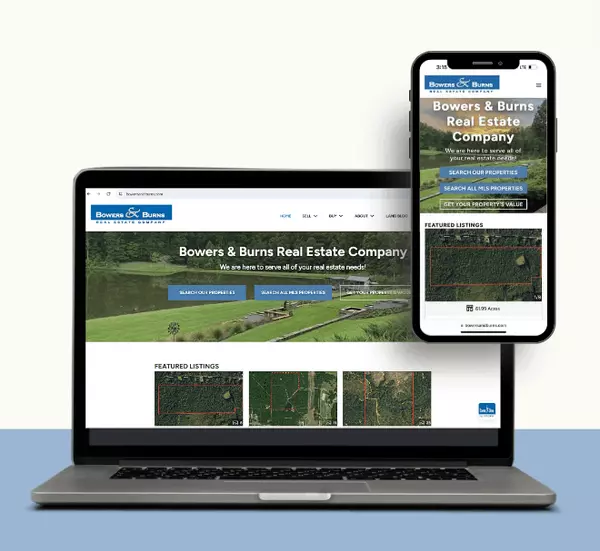Finding Your Dream Plot: A Comprehensive Guide to Securing the Perfect Parcel of Land

Finding that Perfect Parcel of Land
Introduction
The journey to finding your perfect parcel of land is both thrilling and challenging. Whether you're looking to make a sound investment, build your dream home, or develop a commercial project, choosing the right piece of land is a crucial step. With the right knowledge and preparation, you can navigate this complex process and make an informed decision. This guide will walk you through the essential steps and considerations to help you find that ideal plot. From identifying your primary needs to securing financing and understanding market demands, each section is designed to equip you with the insights you need. Ready to dive in? Let’s get started!
Determining Primary Needs and Motivations
Before starting your search for land, it's essential to clarify why you're making this purchase. Are you planning to construct a residential home, start a new business, or simply invest in property? Your primary motivations will guide every subsequent decision, from location and size to price and future development plans. By defining your objectives clearly, you'll be able to narrow down the options and focus on what truly matters to you.
Conducting Due Diligence
Research Property History
When you're considering a parcel of land, understanding its history is crucial. This involves looking at previous ownership records, any past transactions, and the land's usage over the years. This step can help you uncover potential red flags, such as unresolved disputes or historical restrictions that might limit your plans. Start by visiting local government offices or their websites, as they often hold detailed property records. You might also consider hiring a title company to perform a thorough title search, ensuring there are no hidden surprises down the line.
Assess Boundaries and Legal Restrictions
Clearly defined boundaries are essential to avoid future disputes with neighbors or local authorities. Before finalizing your decision, ensure a professional land surveyor conducts a comprehensive survey. This will provide you with precise boundary lines and identify any encroachments or easements that could affect your use of the land. Additionally, familiarize yourself with any legal restrictions, such as zoning laws, covenants, and environmental regulations. These constraints can significantly influence what you can and cannot do with the property, so understanding them upfront is critical.
Evaluate Environmental Conditions
Environmental factors can profoundly impact the usability and value of a piece of land. Check for any natural hazards such as flood zones, soil stability issues, or contamination from previous industrial use. Conducting environmental assessments, like a Phase 1 Environmental Site Assessment (ESA), can help identify potential problems. Knowing what you're dealing with early on allows you to factor in remediation costs or decide if the property is worth the investment. It's always better to be over-prepared than to face unexpected issues after the purchase.
Consult with Experts
Navigating the complexities of land acquisition can be daunting, but you don't have to do it alone. Consulting with real estate attorneys, land professionals, and local government officials can provide valuable insights and guidance. These experts can help you interpret zoning laws, understand local land-use plans, and even negotiate better terms with sellers. Their expertise can be invaluable, helping you avoid common pitfalls and ensuring that every aspect of your due diligence is thorough and accurate. By leveraging their knowledge, you can make a well-informed decision and move forward with confidence.
Financing the Land Purchase
Financing the purchase of land can seem daunting at first, but with the right preparation, it can be a straightforward process. First, you'll need to assess your financial capacity and explore the different financing options available. Unlike traditional home mortgages, land loans often require higher down payments and come with higher interest rates due to the perceived risk. These loans can vary widely, so it’s crucial to compare terms from multiple lenders. Key options include:
-
Raw Land Loans: These are for undeveloped land and often require a substantial down payment.
-
Unimproved Land Loans: Suitable for land that has minimal improvements, like access to utilities.
-
Improved Land Loans: Ideal for land with infrastructure like roads and access to utilities.
In addition to traditional loans, owner financing is another viable option. This arrangement allows you to make payments directly to the seller, often with more flexible terms. However, it's essential to carefully negotiate the terms to ensure they meet your financial situation. When considering owner financing, pay close attention to the interest rates and the repayment schedule. It’s also a good idea to involve a real estate attorney to review the contract and protect your interests.
Beyond securing the initial financing, don't overlook the additional costs associated with buying land. These can include property taxes, insurance, and any necessary improvements like building a septic system or connecting to utilities. To avoid being blindsided by unexpected expenses, create a detailed budget that includes:
-
Down Payment: Usually 20% or more of the purchase price.
-
Property Taxes: Varies by location but can be a significant ongoing cost.
-
Improvement Costs: Bringing in utilities, installing infrastructure, or clearing the land.
By understanding and planning for these financial aspects, you can ensure a smoother path to land ownership.
Searching for Available Land
Once you've pinpointed your primary needs and motivations, it's time to dive into the search for available land. The digital age offers a plethora of resources, making it easier than ever to browse potential plots from the comfort of your home. Online platforms such as Zillow, LandWatch, and Realtor.com feature extensive listings, complete with photos, descriptions, and pricing. These resources allow you to filter searches by various criteria such as location, acreage, and price range, providing a comprehensive view of what's available on the market.
However, online searches are just the beginning. To get a more holistic understanding of a property, consider visiting the sites in person. This will give you insights that photos and descriptions can't capture, such as the land's topography, nearby amenities, and overall vibe. Nothing beats standing on the actual plot and imagining your future home, farm, or commercial property. It's also an excellent opportunity to assess the accessibility and surrounding community, which can be significant factors in your decision-making process.
In addition to online resources and site visits, interacting with local real estate agents can be invaluable. These professionals often have inside knowledge of upcoming listings and off-market opportunities that aren't readily available online. They can also provide crucial information about zoning laws, property taxes, and other legal considerations that might affect your purchase. Collaborating with a knowledgeable agent can streamline your search and ensure you don’t overlook any critical details.
Here are some steps to enhance your search for available land:
-
Utilize Online Listings: Start with popular real estate and land-specific websites to get an initial sense of what's available.
-
Conduct Site Visits: Schedule visits to promising properties to experience the land firsthand and assess any potential issues or benefits.
-
Consult Local Experts: Work with real estate agents who specialize in land sales to gain access to exclusive listings and expert advice.
-
Network within the Community: Sometimes, the best opportunities come from word-of-mouth. Engage with local communities, attend real estate events, or join relevant forums to uncover hidden gems.
By leveraging these various methods, you'll maximize your chances of finding a land parcel that perfectly aligns with your goals and needs. Happy hunting!
Working with Professionals
Navigating the complexities of buying land can be daunting, but enlisting the help of professionals can significantly ease the process. Real estate agents, especially those specialized in land transactions, bring invaluable expertise to the table. Their deep knowledge of the local market, zoning laws, and property values can help you avoid potential pitfalls and ensure a smooth transaction. Moreover, they can provide insights that aren’t readily available through online searches, such as neighborhood dynamics and future development plans in the area.
Another key professional to consider is a land surveyor. Accurate surveys are critical for understanding the exact boundaries of the property, identifying any encroachments, and ensuring that the land meets your intended use. A land surveyor can uncover potential issues that might not be apparent at first glance, such as easements or discrepancies in the property description. This detailed information is essential for making an informed decision and can save you from costly disputes down the line.
Additionally, involving a legal expert can provide further peace of mind. An attorney who specializes in real estate can review contracts, conduct title searches, and help resolve any legal issues that may arise during the purchase process. They ensure that all legal aspects are covered, protecting your investment from unforeseen complications. By having an attorney on your side, you can confidently navigate through the legal intricacies of buying land.
Lastly, it’s beneficial to consult with financial advisors or mortgage brokers, especially if you’re considering financing options. These professionals can guide you through the complexities of obtaining a land loan, comparing interest rates, and understanding the financial implications. Having a clear financial plan and understanding your borrowing capacity will allow you to make a more informed and confident purchase. By leveraging the expertise of these professionals, you’ll be better equipped to find and secure the perfect parcel of land.
Factors to Consider when Buying Land for Development
Location
One of the most critical factors to consider when buying land for development is the location. The right location can make or break your project. Think about accessibility—how easy is it for people to get to? Proximity to amenities like schools, hospitals, and shopping centers adds enormous value. Additionally, consider the future growth potential of the area. Areas with planned infrastructure developments or burgeoning industries can offer substantial returns on investment. Always remember, in real estate, location is king!
Zoning Regulations
Zoning regulations are another vital aspect to consider. These rules dictate what kind of structures can be built on the land and what activities can take place there. Ignoring these can lead to legal headaches and financial losses. Before purchasing, consult with local authorities or a real estate expert to understand the zoning laws applicable to your parcel. This will ensure that your intended use—whether residential, commercial, or industrial—complies with local regulations. Knowing the zoning laws upfront saves you from unpleasant surprises down the road.
Infrastructure and Utilities
Access to infrastructure and utilities can significantly impact your development plans. Essential services like water, electricity, and sewage systems should be readily available. If the land lacks these utilities, the cost to connect to existing infrastructure can be exorbitant. Evaluate the feasibility and expense of bringing in these services before committing to the purchase. This step not only ensures the viability of your project but also helps you budget more accurately.
Topography and Natural Features
The physical characteristics of the land, such as topography and natural features, are crucial considerations. Steep slopes, rocky terrain, or poor soil quality can complicate construction efforts and increase costs. Conduct a thorough site inspection to assess these factors. Understanding the land's natural attributes will help you plan more effectively and avoid unexpected challenges. For instance, if the land is prone to flooding, you’ll need to account for additional drainage solutions, which can be both costly and time-consuming.
Market Demand
Lastly, don't overlook the importance of market demand. Understanding the demand for the type of development you’re planning—whether it’s residential homes, commercial spaces, or agricultural land—is key to making a sound investment. Conduct market research to gauge the competition and potential profitability. Talk to local real estate agents and consult market reports to get a sense of what buyers or tenants in the area are looking for. Aligning your project with market demand maximizes your chances of success.
By carefully considering these factors, you'll be well on your way to finding the perfect parcel of land for your development project. Each element plays a crucial role in ensuring your investment is both viable and profitable. Happy land hunting!
Location
When it comes to purchasing land, location is paramount. The right location can significantly impact the value and potential of your property. Whether you're planning to build a home, set up a business, or invest in future growth, understanding the nuances of your chosen location is crucial. Start by considering the overall accessibility of the land. Are there major roads, highways, or public transportation options nearby? Easy access can be a significant advantage, especially if you plan to develop the land for commercial purposes.
Proximity to amenities such as schools, hospitals, shopping centers, and recreational facilities can also add immense value. Imagine living in a place where everything you need is just a short drive away. This convenience not only improves your quality of life but can also make the property more attractive to potential buyers or tenants. For those looking to invest, areas near upcoming developments or growth corridors can offer promising returns.
When evaluating location, it's also important to consider the surrounding environment. Are there any natural features like lakes, rivers, or parks that could enhance the property's appeal? Conversely, are there any potential environmental hazards such as flood zones, industrial areas, or landfills nearby? A beautiful view can significantly enhance the desirability of a property, but it's equally important to be aware of any factors that might detract from it.
Last but not least, think about the future. Is the area slated for development? Are there any zoning changes or infrastructure projects planned? Keeping an eye on future growth and development plans can help you make a more informed decision. Here are some key points to consider:
-
Accessibility: Proximity to major roads, highways, and public transportation.
-
Amenities: Nearby schools, hospitals, shopping centers, and recreational facilities.
-
Natural Features: Presence of lakes, rivers, parks, and other natural attractions.
-
Environmental Hazards: Potential risks such as flood zones or industrial areas.
-
Future Growth: Planned developments, zoning changes, and infrastructure projects.
By thoroughly evaluating these aspects, you'll be well on your way to selecting a location that meets your needs and holds promise for the future.
Zoning Regulations
Understanding zoning regulations is a critical step in your land-buying journey. Zoning laws dictate how you can use your land, whether for residential, commercial, agricultural, or industrial purposes. These regulations are established by local governments to ensure organized development and to protect community welfare. Before purchasing, you need to research and comprehend the zoning laws applicable to your desired property. Failing to do so could result in costly adjustments or even prohibit you from using the land as intended.
Navigating zoning regulations can feel like deciphering a complex puzzle, but it's crucial for making informed decisions. Start by contacting your local planning and zoning department or visiting their website. These resources will provide you with zoning maps and ordinances that outline permitted uses, building codes, and any restrictions that apply to the land in question. Pay close attention to specific details, such as setback requirements, height limitations, and density regulations. These factors will directly impact your development plans and overall project feasibility.
It's also wise to consider potential changes in zoning that could affect your land's future value. Local governments periodically review and update zoning laws, which may either benefit or hinder your property’s intended use. Stay proactive by attending community meetings or engaging with local zoning boards. These interactions can provide insights into upcoming changes and give you a voice in the planning process. Understanding the broader vision for the area will help you anticipate future developments that could impact your investment.
In some cases, you might find that the current zoning regulations do not align with your intended use. Don’t be discouraged; there's often room for flexibility through the process of obtaining a zoning variance or special use permit. This requires a formal application and approval from the local zoning board. Be prepared to present a compelling case demonstrating how your project aligns with community goals and benefits the local area. While this process can be time-consuming, securing the necessary adjustments can unlock the full potential of your land.
Lastly, consider consulting with a zoning attorney or land use planner. These professionals bring specialized knowledge and experience to the table, helping you navigate the complexities of zoning regulations. They can assist in interpreting legal jargon, filling out required paperwork, and representing you in meetings with local authorities. Hiring an expert may entail additional costs, but it’s a worthwhile investment to ensure your land purchase meets all regulatory requirements and sets the stage for a successful project.
By thoroughly understanding and addressing zoning regulations, you'll be well-equipped to make an informed and confident purchase, paving the way for the successful realization of your land's potential.
Infrastructure and Utilities
When considering the perfect parcel of land, the availability of infrastructure and utilities is paramount. Imagine purchasing a beautiful plot only to discover that connecting to essential services like water, electricity, and sewage systems will cost a fortune and delay your plans. To avoid such pitfalls, always inquire about the existing infrastructure and utility connections in the area. This step can save you time, money, and a lot of headaches in the future.
Start by evaluating the current availability of utilities on the land. Are there water and electricity lines already in place? If not, how far are these utilities from your potential property, and what would it cost to bring them in? For instance, connecting to a water system may involve significant trenching and piping, which can quickly escalate in cost. Similarly, gaining access to the electrical grid may necessitate permits and substantial installation fees. These are critical factors that can influence the overall feasibility of your project.
In addition to utilities, consider the surrounding infrastructure. Accessibility is a major factor—how easy is it to get to your land? Proximity to major roads, highways, and public transit can significantly enhance the value and convenience of your property. Think about the day-to-day practicalities, such as commuting time, ease of access for construction vehicles, and future resale value. Adequate road infrastructure can also impact emergency response times and overall safety for residential or commercial purposes.
Lastly, don't overlook the importance of modern conveniences like internet and telecommunications services. In today's interconnected world, reliable internet access is often considered a necessity rather than a luxury. Check if high-speed internet and mobile network coverage are available, especially if you plan to run a business or work from home. These elements collectively contribute to the land's overall utility and livability, ensuring that your investment meets both present and future needs.
Topography and Natural Features
When searching for the perfect parcel of land, one of the most critical factors to consider is the topography and natural features of the property. The land's physical characteristics, such as its slope, soil quality, and drainage patterns, can significantly impact your plans, whether you’re building a home, developing a commercial project, or investing in agriculture. For instance, steep slopes might offer breathtaking views but could complicate construction and increase costs due to the need for additional foundation work or retaining walls. On the other hand, flat land typically makes for more straightforward and less expensive building conditions but might lack the aesthetic appeal of varied terrain.
Soil quality is another essential aspect to examine. If you’re purchasing land for agricultural purposes, the fertility and composition of the soil will determine what crops you can grow and how productive your farm will be. Even if your goal isn't farming, soil quality matters because it affects drainage and the overall stability of any structures you plan to build. Conducting soil tests can provide valuable insights into whether the land can support your intended use and help you avoid unexpected issues down the road.
Natural features like water bodies, vegetation, and rock formations can add significant value to your property, offering unique selling points or enhancing your living experience. Proximity to lakes, rivers, or streams can provide recreational opportunities and aesthetic beauty but might also come with increased regulatory scrutiny and flood risks. Similarly, mature trees and lush vegetation can provide shade and privacy, enhancing the property’s appeal and potentially increasing its value. However, these features might also require maintenance and could limit where and how you can build.
Lastly, consider the overall ecosystem and environmental factors. Are there any protected species or wetlands on the property that could restrict development? Understanding the environmental attributes of the land will help you evaluate how easy or challenging it will be to realize your plans. Consulting with an environmental expert or land surveyor can provide you with a comprehensive analysis, ensuring you make an informed decision before proceeding with the purchase.
Market Demand
Understanding market demand is crucial when you're considering land for development. Imagine putting in the time and resources to develop a beautiful residential community, only to find out that the area has an oversupply of homes and very few interested buyers. This scenario underscores the importance of conducting thorough market research. You'll want to analyze the demand for the type of development you're planning. Is there a growing need for residential homes, commercial spaces, or agricultural land in your chosen area? Tools such as real estate market reports, demographic studies, and economic forecasts can provide valuable insights into these trends.
Another important aspect of market demand is understanding your competition. Who are your competitors, and what are they offering? Are there similar projects already in progress or completed nearby? Knowing the answers to these questions can help you identify gaps in the market and unique selling points for your development. For instance, if the area is flooded with mid-range housing but lacks luxury apartments, you might find an opportunity to fill that niche. Consulting with local real estate agents and industry professionals can also give you a clearer picture of the competitive landscape.
In addition to current market conditions, you'll also want to consider future trends. Look into local government plans and policies that might affect demand in the coming years. Are there infrastructure projects, such as new highways or public transportation systems, that could make the area more attractive? Economic initiatives aimed at boosting local industries can also drive market demand. By staying ahead of these trends, you can position your development to capitalize on future growth, rather than just current conditions.
Finally, don't forget to gauge community sentiment. Sometimes, the best way to understand market demand is to talk directly to potential buyers or tenants. Conduct surveys, focus groups, or informal interviews to get a sense of what people are looking for in a new development. Do they want more green spaces, better amenities, or particular types of housing? Gathering this firsthand information can be invaluable in tailoring your project to meet actual demand, rather than relying solely on statistical data. When you combine quantitative research with qualitative insights, you stand a much better chance of meeting—and exceeding—market expectations.
Finding that Perfect Parcel of Land
Introduction
The journey to finding your perfect parcel of land is both thrilling and challenging. Whether you're looking to make a sound investment, build your dream home, or develop a commercial project, choosing the right piece of land is a crucial step. With the right knowledge and preparation, you can navigate this complex process and make an informed decision. This guide will walk you through the essential steps and considerations to help you find that ideal plot. From identifying your primary needs to securing financing and understanding market demands, each section is designed to equip you with the insights you need. Ready to dive in? Let’s get started!
Determining Primary Needs and Motivations
Before starting your search for land, it's essential to clarify why you're making this purchase. Are you planning to construct a residential home, start a new business, or simply invest in property? Your primary motivations will guide every subsequent decision, from location and size to price and future development plans. By defining your objectives clearly, you'll be able to narrow down the options and focus on what truly matters to you.
Conducting Due Diligence
Once you have a clear goal in mind, the next step is thorough research. Investigate the land's history, environmental conditions, and previous ownership. Ensure there are no legal disputes or unresolved issues that could complicate your purchase. Due diligence helps you avoid future problems and ensures a smooth transaction.
Financing the Land Purchase
Securing financing is a critical part of the land-buying process. Unlike home loans, land loans can be more challenging to obtain. You may need to explore different financing options, such as bank loans, government programs, or private lenders. Having a solid financial plan will make you a more attractive buyer and simplify the buying process.
Searching for Available Land
Start your search by exploring online listings, visiting local real estate offices, and connecting with landowners. Use multiple sources to broaden your options. Be patient and thorough, as finding the right piece of land often requires time and persistence.
Working with Professionals
Real estate agents, land surveyors, and lawyers can provide invaluable assistance. A real estate agent familiar with land transactions can help you find potential plots, while a surveyor will ensure you understand the land's boundaries and features. A lawyer can guide you through legal complexities, ensuring your interests are protected.
Factors to Consider when Buying Land for Development
When buying land for development, there are several critical factors to consider:
Location
The location of the land will significantly impact its value and suitability for your needs. Consider proximity to amenities, road access, and the overall community vibe.
Zoning Regulations
Check local zoning regulations to ensure the land can be used for your intended purpose. Zoning laws dictate what you can build and how the land can be developed.
Infrastructure and Utilities
Assess the availability of essential utilities like water, electricity, and sewage. Lack of infrastructure can lead to significant additional costs.
Topography and Natural Features
Evaluate the land's topography and natural features. Ensure the terrain is suitable for your plans and assess any potential environmental concerns.
Market Demand
Understand the market demand in the area. High demand can signal a good investment, while low demand may indicate potential challenges.
Financial Considerations
Financial considerations are central to any land purchase. Evaluate the total cost, including the purchase price, taxes, and development expenses. Secure a reliable financing source and ensure you have a contingency budget for unexpected costs. Understanding your financial limits and planning accordingly will ensure a smooth acquisition and development process.
Conclusion
Finding the perfect parcel of land is a journey that requires careful planning, diligent research, and strategic decision-making. From identifying your primary needs and motivations to conducting due diligence and navigating financial considerations, each step plays a crucial role. By approaching the process methodically and leveraging professional help, you can make informed decisions that align with your goals. Remember, the right piece of land is out there waiting for you—happy hunting!
FAQ
What are the primary motivations for buying land?
Before starting your search, it's crucial to identify why you're purchasing land. Are you looking to build a home, start a business, or invest in property? Your motivations will guide decisions regarding location, size, price, and future development. Clarifying your objectives helps narrow down your options and focus on what truly matters.
What does conducting due diligence involve?
Conducting due diligence means thoroughly researching the land before making a purchase. This includes understanding zoning laws, environmental regulations, property boundaries, and any existing easements. It's about ensuring the land meets your needs and there's no hidden legal or environmental risk.
How can I finance a land purchase?
Financing a land purchase might be more complex than financing a home. Options include bank loans, personal savings, or specialized land loans. You'll need a strong credit score and a detailed plan for how you intend to use the land to secure financing.
How do I begin searching for available land?
You can start by checking online listings, local real estate agents, land brokers, and even auction sites. Networking and driving around your desired location can also uncover opportunities not listed online. Being proactive and utilizing multiple sources increases your chances of finding the perfect parcel.
Why is it important to work with professionals?
Working with professionals like real estate agents, land surveyors, and legal advisors ensures you make informed decisions. They can help you navigate the complexities of land purchase, including negotiations, legal paperwork, and zoning laws.
What factors should I consider when buying land for development?
Consider aspects like location, zoning regulations, infrastructure, utilities, topography, and natural features. Each of these factors can significantly impact the feasibility and cost of your development project.
How important is location when buying land?
Location is critical. It affects property value, future development potential, and accessibility. Consider proximity to amenities, transportation, and the overall neighborhood when evaluating location.
What are zoning regulations, and why do they matter?
Zoning regulations dictate how the land can be used, including restrictions on building types, structures, and uses. Understanding these regulations is essential to ensure your plans align with local laws and avoid future legal issues.
Why should I consider infrastructure and utilities when buying land?
Infrastructure and utilities like water, sewage, electricity, and road access are vital for development. Assessing these factors helps estimate the costs and feasibility of your project.
How does topography and natural features affect land purchase?
The land's topography and natural features, such as slopes, soil quality, and water bodies, can influence building costs and design. Understanding these elements ensures you choose land suitable for your intended use.
What role does market demand play in buying land?
Market demand affects the value and potential return on investment. Researching the local market helps you understand trends and make informed decisions about the land's future prospects.
What financial considerations should I keep in mind?
Consider all costs involved, including purchase price, taxes, development costs, and potential future expenses. A detailed financial plan ensures you stay within budget and achieve your objectives without unexpected financial strain.
Recent Posts







